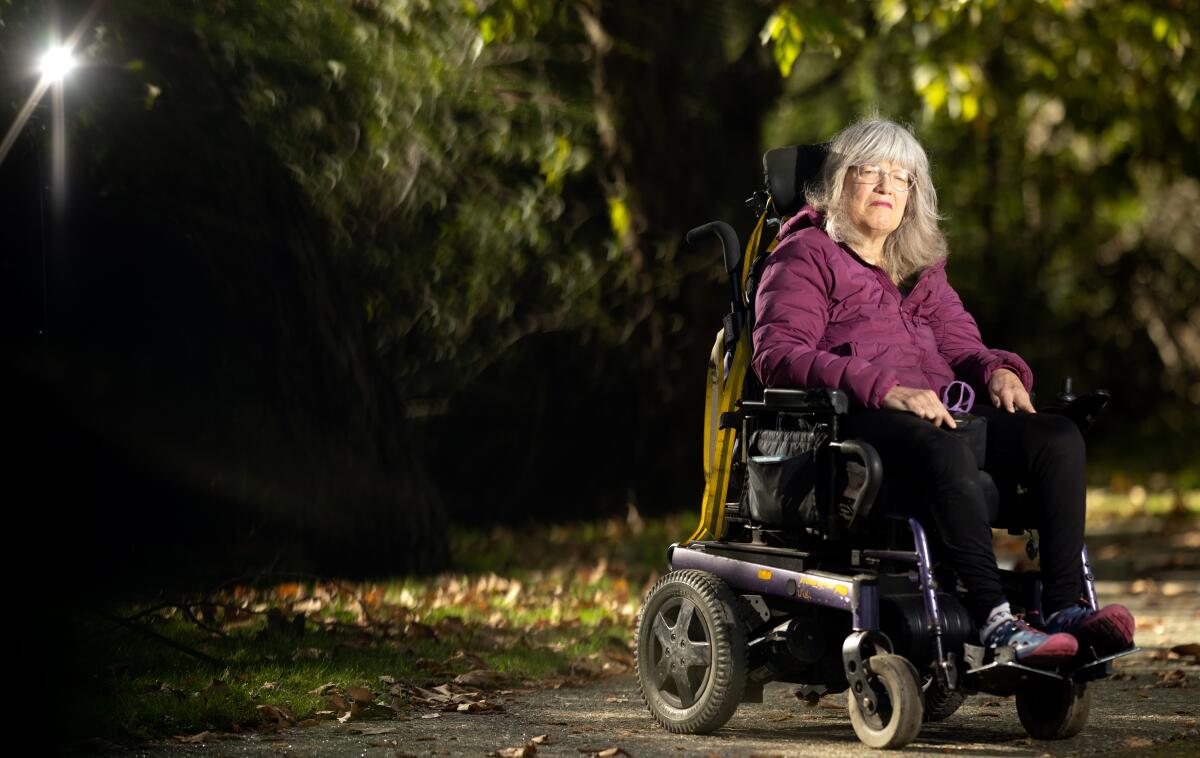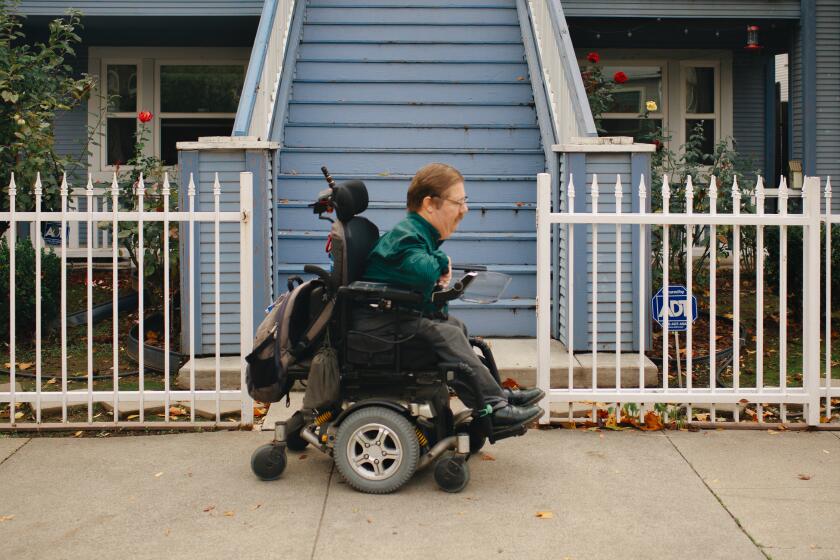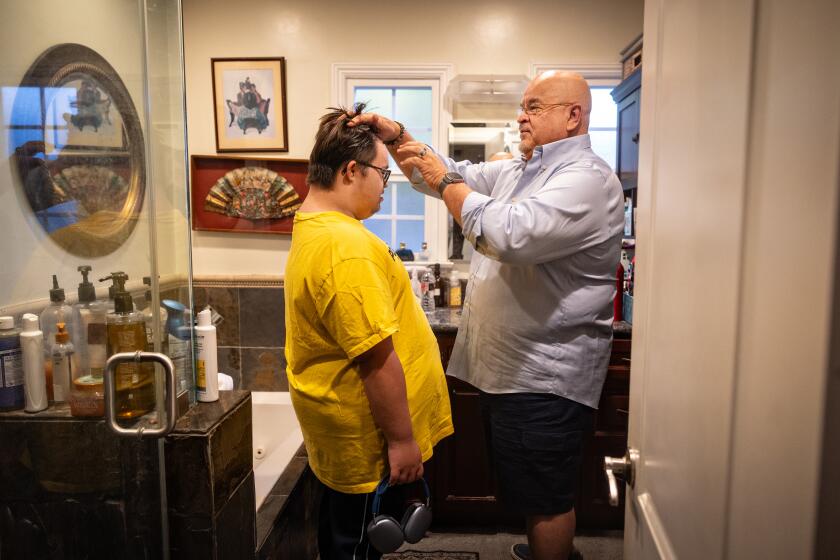Years after lawsuit, Kaiser will pay for new wheelchair for California woman

- Share via
Nearly three years after wheelchair user Beth Smith sued Kaiser for capping coverage well below the costs of many motorized chairs, the Albany resident is slated to get thousands of dollars for a new chair.
Smith, 64, was among the plaintiffs in a class-action suit against Kaiser Foundation Health Plan and the state over limits on insurance coverage of wheelchairs, which can cost tens of thousands of dollars.
The lawsuit said Kaiser plans either excluded or imposed a $2,000 annual limit on wheelchair coverage. Smith was enrolled in a plan with a $2,000-a-year cap, which was a fraction of the estimated cost to replace her “medically necessary power wheelchair,” according to the suit.
The federal suit also targeted the California Department of Managed Health Care, which chose a Kaiser plan as a “benchmark” for what individual and small group health plans must legally cover in the state. Not including wheelchairs as an “essential health benefit” discriminated against people with disabilities, it argued.
The DMHC said the state had not illegally discriminated against people with disabilities because “wheelchairs are not a mandated benefit under California law.” Kaiser also denied the claims: In a court filing, it said its plans had “reasonable coverage limits ... without regard to members’ disability status.”
A judge ruled that the claims against Kaiser had to go to arbitration under agreements with Kaiser members like Smith, rather than proceeding in federal court. In July, an agreement was reached through the arbitration process for Kaiser to pay $15,000 for a motorized wheelchair or more if “found medically necessary.”
The right equipment for wheelchair users can cost thousands of dollars, or even tens of thousands of dollars, and private insurance only covers so much.
Kaiser will also allow Smith “an amount sufficient to pay for a medically necessary wheelchair every five years,” as well as repair and maintenance costs, and will pay $6,400 for out-of-pocket costs for physical therapy that Smith underwent as she waited for a replacement wheelchair. Smith said in a legal declaration that she had suffered chronic pain because her wheelchair no longer fit her body well.
“This matter was resolved by a settlement in arbitration and was limited to one Kaiser Permanente member and does not involve any finding that any Kaiser Permanente health plan does not provide appropriate coverage for wheelchairs,” Kaiser said in response to questions.
The insurer added that “coverage terms for wheelchairs in Kaiser Permanente’s plans have always met or exceeded requirements under California law.”
Smith, who has cerebral palsy, said she was relieved at the thought of getting a replacement for her aging mobility device. She does not have the physical strength to use a less costly manual wheelchair.
Her current wheelchair is more than a decade old and has been breaking down, leaving her at risk of being dangerously stranded, she said. At times, she has resorted to scrounging up used parts or using screws from the hardware store to repair it.
But Smith said a new wheelchair wasn’t the chief reason she wanted to be part of the class-action lawsuit. “I wanted them to change their policy for everyone,” she said.
What galls her is that “it’s so often the case that a person with a disability has to make themselves indigent in order to qualify for what they need,” Smith said. Getting Medi-Cal, for instance, “would involve quitting my career” as a licensed clinical social worker at a nonprofit, where she gets insurance through a Kaiser plan.
“Private insurance is largely a product for employers and designed with their unique interests in mind,” wrote Valarie Blake, a professor at the West Virginia University College of Law, in an expert report for the arbitration case. “And employers traditionally employed people without disabilities.”
As the claims involving Kaiser went through arbitration, the rest of the suit — targeting the state — had been proceeding in federal court. In March, however, it was put on hold as both sides agreed to “seek federal input on the dispute at hand.”
The DMHC said it “has been following recent federal rules and guidance increasing state flexibility” and had reached out to a federal agency focused on insurance oversight for clarification related to wheelchair coverage by health plans and “state defrayal of benefit requirements.”
Attorney Claudia Center of the Disability Rights Education and Defense Fund, which represented Smith and other plaintiffs, said the group is still pressing for a statewide resolution of the issue, potentially through legislation.
Nearly $1 billion allocated for services for Californians with disabilities was ultimately returned to the state, even as some disabled people said they needed more help.
More to Read
Sign up for Essential California
The most important California stories and recommendations in your inbox every morning.
You may occasionally receive promotional content from the Los Angeles Times.













